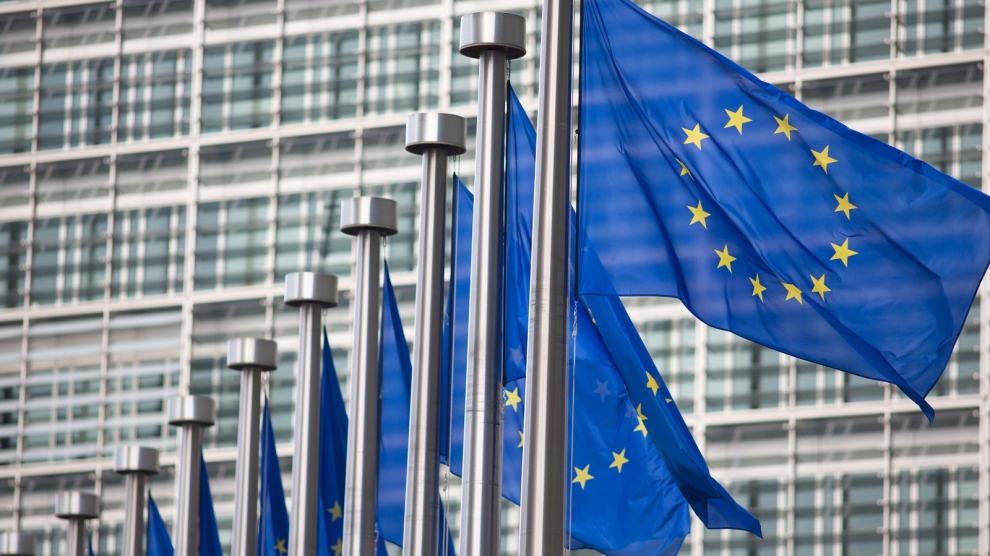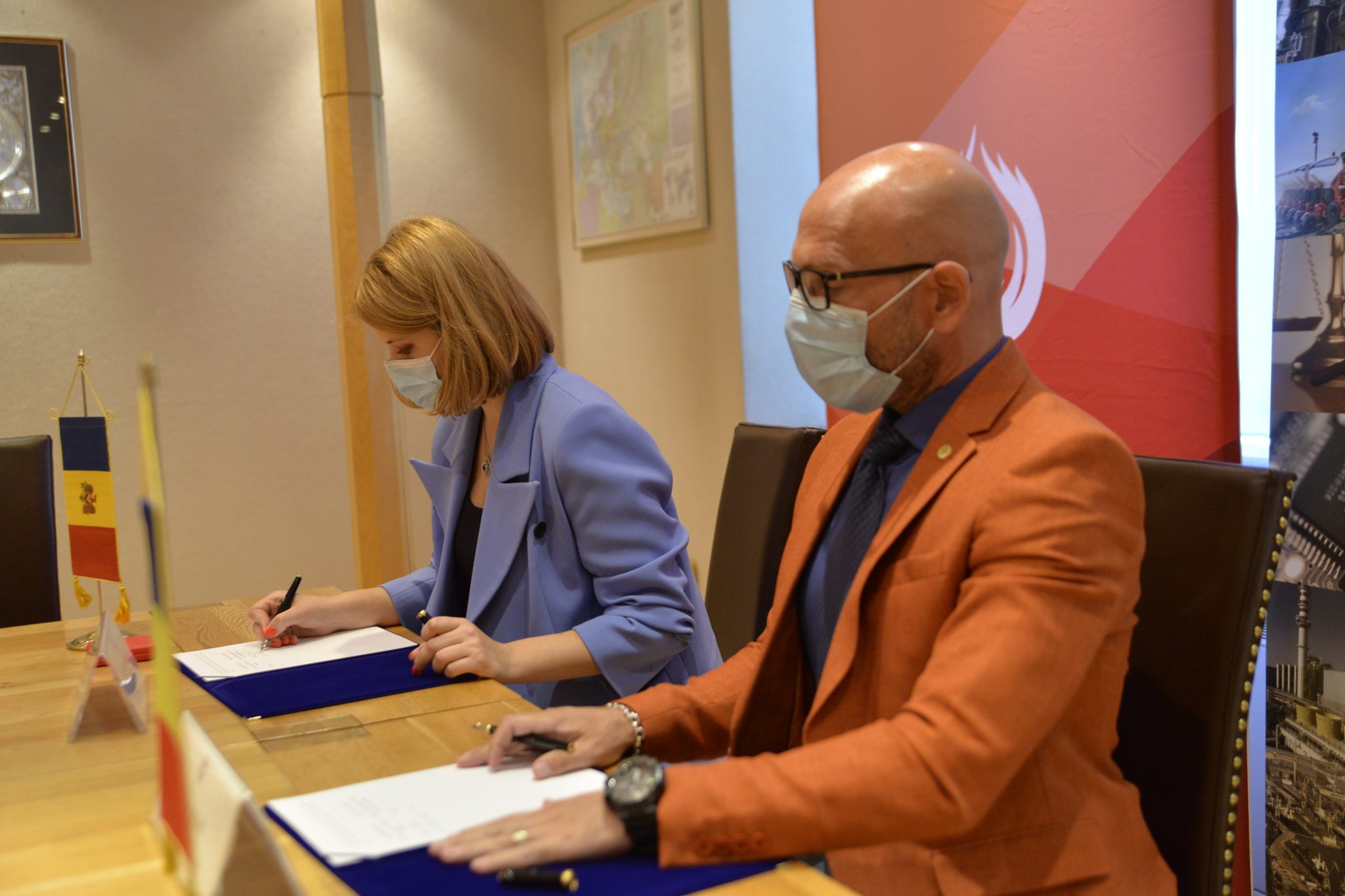Economy
Greece: Athens faces moment of truth, EU's Barroso says
Reading Time: 3 minutesIf the government survives the vote, Greeces parliament will be asked to back the latest spending cuts – worth 28bn euro – on 28 June.
Greece faces a "moment of truth" as the government battles to win support for austerity measures, EU Commission President Jose Manuel Barroso has said.
A vote of confidence late on Tuesday is a first step towards a vital 12bn euro ($17bn; £10bn) loan from the EU and the International Monetary Fund (IMF).
Greece needs the loan to pay its debts.
If the government survives the vote, Greece’s parliament will be asked to back the latest spending cuts – worth 28bn euro – on 28 June.
The EU and IMF will only release funds once the austerity measures have been voted through.
"No-one can be helped against their will," Mr Barroso said in Brussels.
"Next week is the moment of truth, where Greece needs to demonstrate that it is genuinely committed to the ambitious package of further fiscal measures and privatisations put forward by Prime Minister [George] Papandreou’s government."
Protesters against the austerity plan have again gathered in Syntagma Square in Athens, in front of the Greek parliament.
BBC’s Gavin Hewitt: "Thousands of protesters are heading for the Greek parliament"
One protester, Calliope Iris, told the BBC: "The Greek police treat us like criminals. I used to have my own company and had to close it down at the beginning of 2010. The economic climate is forbidding anything new.
"I will continue to go back to Syntagma Square to protest."
Mass demonstrations
Tuesday’s vote of confidence is on the new Greek cabinet, which Prime Minister Papandreou put in place last Friday.
Mr Papandreou hopes the new cabinet, and specifically the new Finance Minister, Evangelos Venizelos, will help secure parliament’s backing for further austerity measures that are already proving deeply unpopular with the Greek people.
At the weekend, eurozone finance ministers decided to postpone their decision on whether to grant Greece the 12bn euro loan until the country introduces the additional spending cuts and privatisation programmes.
Greece needs this aid – the latest tranche of the EU and IMF’s 110bn-euro aid package – by July to be able to keep up with payments to the creditors of its huge debts, which amount to 30,000 euros per person.
If the Greek parliament does back the austerity measures, eurozone finance ministers will meet again on 3 July, with the funds expected to be released by the middle of next month.
However, lawmakers are having to ponder their decision in the face of mass demonstrations, strikes, and even riots.
The latest protest against the cutbacks involves workers at Greece’s state-owned electricity company, who are on a 48-hour walkout.
BBC Europe editor Gavin Hewitt, who is in Athens, says ministers have argued that without further austerity measures in exchange for a new bail-out, Greece is heading for bankruptcy. However, many Greeks appear to prefer that option to further austerity, he says.
Mr Venizelos said the decision of the eurozone finance ministers to delay the loan showed that urgent action was now needed. "We have plenty to do," he said.
If Greece were to default on its debt – worth 150% of its annual GDP output – it would have to leave the 17-member euro group of nations.
UK Conservative MEP Daniel Hannan said the bailout would not help the people of Greece: "This is not assistance for Greece, it’s not how anyone there sees it. They understand perfectly well what the bail-out means, which is that the money will go to European bankers and bondholders, but the repayment will come from Greek taxpayers. So far from being helped, Greece is being sacrificed to save the euro."
Olli Rehn, the European Union’s Monetary Affairs Commissioner, urged Greece to continue with its austerity measures.
"The greatest weight of responsibility lies on the shoulders of the new Greek government," he said.
Mr Rehn added that the situation in Greece was the worst crisis Europe had faced "since the Second World War".
IMF mission
On 20 June, EU finance ministers agreed in principle on a second bail-out package for Greece, about the same size as the first – 110bn euros – passed last May.
The new package, to be outlined by July, will include loans from other eurozone countries.
It is also expected to feature a voluntary contribution from private investors, who will be invited to buy up new Greek bonds as old ones mature.
Officials said this money had to be freely given, or it would be seen as technical default on Greece’s debt repayments.
If Greece were to default – or seen to be in default – it would mean massive losses for European banks that hold Greek debt, including the European Central Bank.
Officials said the new plan was expected to fund Greece into late 2014 and total about 120bn euros.
Inspectors for the EU and IMF are making another visit to Athens on Tuesday in what the European Commission said would be a "technical mission".
The visit, which comes after teams from both bodies have spent months poring through the country’s accounts, is unscheduled, and the Commission did not say what its objective would be.
Economy
Moldova will receive a disbursement of 36 million euros as part of the the Economic Recovery Plan

This week, the European Commission approved the disbursement of 36 million euros in grant money for the Republic of Moldova. The announcement was made by Deputy Director-General for Neighbourhood Policy and Enlargement Negotiations at the European Commission, Katarina Mathernova, who paid an official visit to the Republic of Moldova between September 13-15, together with Managing Director for Russia, Eastern Partnership, Central Asia, Regional cooperation and OSCE, at the European External Action Service, Michael Siebert.
The EU officials had meetings with President Maia Sandu, Minister of Foreign Affairs and European Integration, Nicu Popescu, Speaker of Parliament, Igor Grosu, Prime Minister of the country, Natalia Gavrilita, as well as key representatives of Government, international financial institutions and the civil society, according to a press release issued by the Delegation of the European Union to the Republic of Moldova.
Beside such topics as the EU-Moldova relations and prospects, the priorities of the reform agenda of the new Moldovan Government, preparations for the Eastern Partnership Summit at the end of the year and the Transnistrian conflict settlement, the officials also discussed the EU assistance in support of reforms and the Economic Recovery Plan for Moldova, which was announced in June with a total EU support of 600 million euros over the next 3 years.
“The first measures under the Economic Recovery Plan will shortly materialize, with the expected disbursement of 36 million euros in grant money under budget support programmes to support the authorities’ efforts to fight against the consequences of the pandemic. Moldova can count on EU’s assistance on its path to reforms and to recovery, bringing tangible results to citizens,” Katarina Mathernova stated.
The plan is based on assistance provided by the European Union through various bilateral and regional instruments, aiming to mobilize the funds in the form of grants, loans, guarantees and macro-financial assistance.
“The Economic Recovery Plan for the Republic of Moldova involves much more, not just this financial support provided immediately. It must help digital transformation, strengthen infrastructure, energy efficiency, education and support small and medium-sized enterprises,” the EU official also said.
As Prime Minister Natalia Gavrilita informed, “The Economic Recovery Plan and the 5 flagship initiatives for Moldova in the Eastern Partnership will directly contribute to the reform and consolidation of institutions, stimulate long-term socio-economic development, bring direct benefits to citizens, and unleash new economic opportunities through promoting the green agenda and digitization. Small and medium-sized enterprises (SMEs) have been hit hard by the crisis. Promoting and diversifying access to finance and reducing collateral requirements will be essential in supporting economic operators. We are grateful to the EU partners who will launch two programs to support 50 000 independent Moldovan SMEs to adapt to the new conditions.”
President of the Republic of Moldova, Maia Sandu, welcomed the decision of the European Union to disburse about 745 million lei in grant money, as the official page of the President’s Office announced. “EU support comes after a long period of freezing of European assistance, caused by former governments. We managed to relaunch the political dialogue with the European Union and resume financial assistance. The Republic of Moldova is gradually regaining the trust of its strategic partners. This European support is also a signal of encouragement for the new Government team in its commitment to clean up the institutions, fight corruption and launch development programs in the country,” said Maia Sandu.
Photo: unknown
Economy
Romania and Moldova signed a partnership memorandum pledging to cooperate in promoting their wines

The Chamber of Commerce and Industry of Romania (CCIR) and the National Office for Vine and Wine (NOVW) of the Republic of Moldova signed, last week, a memorandum of cooperation on organizing joint promotional activities in the markets of common interest, as the CCIR announced.
China, Japan or the USA are just some of the markets targeted by the Romanian and Moldovan institutions. The memorandum also involves advertising activities for wines from common indigenous varieties, promoting the oeno-tourist region, developing a tourist route in the two states, exchange of experience, study visits, and mutual support in identifying new export opportunities. “We are very confident that this collaboration between our organizations will lead to sustainable economic growth and a higher degree of well-being among Moldovans and Romanians,” claimed Deputy Secretary-General of CCIR, Bogdan Visan.
On the other hand, Director of the NOVW, Cristina Frolov, declared that no open competition with Romania is aimed at the governmental level of the Republic of Moldova. “This request for collaboration is a consequence of the partnership principle. Romania imports 10-12% of the wine it consumes, and we want to take more from this import quota. Every year, the Romanian market grows by approximately 2.8%, as it happened in 2020, and we are interested in taking a maximum share of this percentage of imported wines without entering into direct competition with the Romanian producer,” the Moldovan official said. She also mentioned that Moldova aims at increasing the market share of wine production by at least 50% compared to 2020, and the number of producers present on the Romanian market – by at least 40%.

Source: ccir.ro
**
According to the data of the Romanian National Trade Register Office, the total value of Romania-Moldova trade was 1.7 billion euros at the end of last year and over 805 million euros at the end of May 2021. In July 2021, there were 6 522 companies from the Republic of Moldova in Romania, with a total capital value of 45.9 million euros.
The data of Moldova’s National Office of Vine and Wine showed that, in the first 7 months of 2021, the total quantity of bottled wine was about 27 million litres (registering an increase of 10% as compared to the same period last year), with a value of more than one billion lei, which is 32% more than the same period last year. Moldovan wines were awarded 956 medals at 32 international competitions in 2020.
Photo: ccir.ro
Economy
Moldova’s hope to be a top walnut exporter and its main difficulties

The Republic of Moldova has perfect weather conditions for growing walnut trees, that creating a great potential of walnut production and trade, especially on international markets, where the demand is way higher than the product’s supply. National and international experts believe that the country’s walnut production industry is on the verge of important transformations, which could lead to increased yields, quality and competitiveness worldwide.
According to authorities, Moldova exports 34-35 thousand tons of walnuts in shell, which is about 7% of the total export of fruit and 5% of the total export of horticultural products. The export value is assessed as being $120 million, that being 57-60% of the total fruit export value and about 50% of horticultural export value. Most of walnut crops are exported to the EU countries, such as France, Germany, the Netherlands, Romania and Austria. The country’s exports were among the world’s top 10 when it comes to the highest dollar value of the product during 2020.
Viorel Gherciu, Minister of Agriculture and Food Industry, pointed out that the production in the domestic walnut industry has increased by 55% in the last five years, which ranks Moldova among the main producers in the world.
“The biggest opportunity for this industry is that we are in the geographical proximity of the largest walnut import area in the world, which is the European Union, with almost 40% of total imports in the world. We are on the EU border, with privileged relations, with an Association Agreement. We already enjoy a good relationship in working with European importers, they trust our processors. A very close collaboration has been created and this is, in fact, the guarantee for those who invest in the area,” claimed the president of the Walnut Producers Association, Oleg Tirsina.
The data provided by the National Bureau of Statistics show that there are 34.7 thousand hectares of walnut plantations in the country. 20.90 hectares are represented by orchards. 75% of planted orchards are formed of old varieties trees. 30-35% of the exported production comes from orchards, the rest comes from individual farmers and plantations along the roads. This means that the quality of walnut production is not at its maximum potential. Developing commercial plantations through orchards modernization and extension of walnut varieties would provide double yield and better quality, experts say.
Governmental support in the form of subsidizing solutions, foreign investments and credit options are indispensable for the industry development. One of the financing options is the credit line of the European Investment Bank Project. Since 2016, 15 producers and processors of nuts, almonds and hazelnuts have benefited from these loans with the total amount of investments worth 8.7 million euros. A further extension of the project would provide another 60 million euros for the modernization of the horticultural sector in general and for harvesting organic walnuts in particular.
Photo: heymoldova.com





















